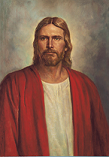
FAIR is a non-profit organization dedicated to providing well-documented answers to criticisms of the doctrine, practice, and history of The Church of Jesus Christ of Latter-day Saints.
| Answers portal |
| Mormon FAQ |

|
 Frequently Asked Questions about Church Disciplinary Councils
Frequently Asked Questions about Church Disciplinary CouncilsIf you have a question about the whys, hows, or wherefores of Church Discipline in the Church of Jesus Christ of Latter-day Saints, our FAQ has the answer.
Whenever this [stake high] council convenes to act upon any case, the twelve councilors shall consider whether it is a difficult one or not; if it is not, two only of the councilors shall speak upon it, according to the form above written. But if it is thought to be difficult, four shall be appointed; and if more difficult, six; but in no case shall more than six be appointed to speak. The accused, in all cases, has a right to one–half of the council, to prevent insult or injustice. And the councilors appointed to speak before the council are to present the case, after the evidence is examined, in its true light before the council; and every man is to speak according to equity and justice. Those councilors who draw even numbers, that is, 2, 4, 6, 8, 10, and 12, are the individuals who are to stand up in behalf of the accused, and prevent insult and injustice.
|

FAIR is a non-profit organization dedicated to providing well-documented answers to criticisms of the doctrine, practice, and history of The Church of Jesus Christ of Latter-day Saints.
We are a volunteer organization. We invite you to give back.
Donate Now